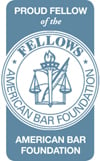On Nov. 30, the Illinois Supreme Court, in In re Marriage of Christine Goesel and Andrew Goesel, 2017 IL 122046 (2017), held that earned attorney fees — as in fees received for actual services rendered — are not “available” for turnover, or disgorgement, pursuant to a petition for interim attorney fees brought under Section 5/501(c-1) of the Illinois Marriage and Dissolution of Marriage Act and, thus, resolving a contentious split in the circuits.
This article will touch upon the history, as well as the main cases cited in Goesel, which got us to where we are today.
The statute, 750 ILCS 5/501(c-1), affectionately known as the “leveling the playing field” provision, governing the award of interim attorney fees in actions brought under the act, became law June 1, 1997. It allows one attorney to effectively reach into the pocket of his or her opponent for an equal share of the retainer or fees received by the latter for legal representation.
This, after the court makes a finding that both parties lack the financial resources to fund litigation brought under the act. This logically started a journey for family law attorneys to keep their pockets out-of-bounds from their opponent’s hands. Application of Dowling v. Chicago Options Associates Inc., et al., 875 N.E.2d 1012, 226 Ill.2d 277 (2007), was certainly worth a try.
In Dowling, the Illinois Supreme Court recognized the existence and validity of advance-payment retainers. Unlike a security retainer (which remains the client’s property and is held in the attorney’s client’s funds account until earned), an advance-payment retainer is deposited directly into the attorney’s general account — effectively shielding it from the claims of any of the client’s creditors.
As such, it is considered the attorney’s property, subject to refund to the client of any unearned funds remaining when the attorney’s retention ends. After Dowling, the Illinois Supreme Court amended portions of the Illinois Code of Professional Conduct to cover advance-payment retainers, which by definition, are not held in one’s client’s funds account. (iardc.org/DowlingFAQs.html “Frequently Asked Questions for Retainers and Dowling” — put out by the Attorney Registration & Disciplinary Commission is must reading for anyone contemplating accepting advance-payment retainers.)
With Dowling in mind, perhaps an advance-payment retainer could also act as a shield from 750 ILCS 5/501 (c-1). In In re Marriage of John J. Earlywine and Jessica A. Earlywine, 2013 IL 114779, 996 N.E.2d 642, 374 Ill.Dec. 947 (2013), the Illinois Supreme Court held otherwise.
In Earlywine, after finding that both parties lacked sufficient financial resources to fund litigation brought under the act, the trial court ordered petitioner’s attorney, Thomas James, to turn over, or disgorge, to respondent’s attorney half the fees previously paid to him as an advance-payment retainer.
James had accepted an advance-payment retainer specifically to circumvent the “leveling of the playing field” rules and specifically to thwart just such a turnover order. The trial court held James in “friendly” contempt at his request so that he could appeal the turnover order.
The concept of “friendly” contempt can be explored in In re The Marriage of Beyer and Parkis, 753 Ill. Dec. 406 (Ill. App. Ct. 2001), a case that also remains the must-read primer for Section 5/501(c-1) proceedings. Beyer pointed out that, while a turnover order for interim attorney fees is not final and appealable, Illinois Supreme Court Rule 304(b)(5) allows for interlocutory appeal of an order for contempt imposing monetary or other penalties.
Earlywine held that advance-payment retainers could not be used to thwart the intent of Section 501(c-1). Earlywine held that to allow attorney fees to be shielded with an advance-payment retainer arrangement would directly undermine the “level the playing field” policies as well as strip the statute of its power.
If the court were to accept James’ argument, an economically advantaged spouse could obtain an unfair advantage in any dissolution case simply by stockpiling funds in an advance-payment retainer held by his or her attorney. The Illinois Supreme Court affirmed the trial court’s turnover order while ordering the contempt order to be vacated. What followed was a contentious split in the circuits.
In In re Marriage of Michael Squire and Catherine D. Squire, 2015 IL App (2d) 150274 (Ill. App. Ct. 2015), an unemployed wife borrowed $130,000 from her parents to pay the Stogsdill Law Firm P.C. in Wheaton to represent her in dissolution of marriage proceedings.
Pursuant to the husband’s petition for interim attorney fees, William J. Stogsdill was ordered to disgorge $60,000, or about half of the $130,000 in fees his firm had billed its client. It did not matter to the Squire court that the fees were from nonmarital funds. (Under the act, courts lack jurisdiction to divide nonmarital property in predecree proceedings. However, once nonmarital property is put into play by being used for attorney fees, that protection disappears.)
After being held in contempt for refusing to turn over the funds, the turnover order made it to the 2nd District Appellate Court, bringing into play what Section 501(c-1) meant by “available” funds.
Foreshadowing the final Goesel opinion, Stogsdill argued that truly “earned” fees were no longer “available” for an interim fee award. He also argued that Earlywine was not applicable because his firm did not receive an advance-payment retainer, suggesting that such a retainer is essentially an accounting device to shield the funds from the client’s creditors, whereas he had earned his retainer by performing legal services.
The Squire panel believed that Earlywine did not intend to limit its holding to advance-payment retainers. It also stated that in construing the intent of a statute, it was allowed to consider not only the language of the statute, but also the purpose and necessity for the law, evils sought to be remedied and goals to be achieved.
It suggested that one of the “evils” was the attorney representing the financially advantaged spouse filing voluminous pleadings and motions early in the case, thus “earning” the retainer, while leaving the other spouse to respond to a mountain of paperwork with little chance of obtaining resources to do so properly.
The Squire panel also opined, that earned or not, funds were always “available” somewhere. The Squire court affirmed the trial court’s disgorgement order against Stogsdill, while vacating its order of contempt.
The 1st District saw things differently.
In In re Marriage of Altman, 2016 IL App (1st) 143076 (Ill. App. Ct. 2016) the trial court record indicated that the proceedings have been “extremely contentious” and the parties “overly litigious.” The court found that both parties lacked sufficient access to assets or income to pay reasonable attorney fees and costs and that the case presented a classic scenario for invocation of the act’s “leveling of the playing field” provisions.
In addition to divvying up funds remaining in his client fund account, the court ordered the husband’s attorney to disgorge a total of $16,000 in fees paid for services already rendered. The 1st District reversed the second part of that order, requiring disgorgement of earned fees.
Altman clearly created the template for the final Goesel opinion, including a primer on the mechanics of statute interpretation. After paying its de rigueur “respect” to “our colleagues’ decision in Squire,” the Altman court proceeded to shred it to pieces.
In fairness, Squire did not address many issues raised in Altman. The court assumed it was because Stogsdill did not raise them in Squire. It seemed to the Altman court a “tortured” reading of Section 501 (c-1) to say that even though the firm has earned the fees, paid itself (as it was entitled to do), and used that income to pay salaries, overhead and litigation expenses for items such as experts and court reporters, it can nonetheless be required to refund those fees, not to its client, but to a third party.
As such, Altman held that funds earned by and paid to a party’s lawyer in the normal course of representation for past services rendered are not “available funds” within the meaning of Section 501(c-1). It reversed the disgorgement order to the extent it required appellant-contemnor and husband’s attorney Steven Gerage to disgorge fees he had already earned and then vacated the contempt order against him.
In In re Marriage of Christine Goesel and Andrew Goesel, 2017 IL App (3d) 150101 (Ill. App. Ct. 2017), the 3rd District also sided with Altman, with a slight twist.
The essences of the main cases cited in the Illinois Supreme Court’s Goesel opinion have already been discussed, above. As such, what follows will be a brief, albeit anti-climactic additional discussion of that opinion.
In its Goesel opinion, the 3rd District sided with Altman, but held as “available” fees earned after an attorney receives an opponent’s petition for interim attorney fees.
Somehow, the court got to that place by equating an interim fee petition with a trial court lacking jurisdiction to modify a support order retroactive to before the filing and notice of a motion to modify. That loophole for grabbing truly earned fees was jettisoned by the Illinois Supreme Court in its subsequent Goesel opinion.
In Goesel, the Illinois Supreme Court adopted the Altman opinion along with the discussions and rationale behind it, holding that fees that have been earned (not earned as in Dowling, but truly earned) are not subject to disgorgement. Period.
End of story?
Food for thought: In rendering its ruling, the Illinois Supreme Court noted the parties had stipulated the fees already earned were reasonable and necessary. What if a portion of the fees were shown to be not reasonable and/or not necessary?
This article has been reprinted with permission from the original publisher.







